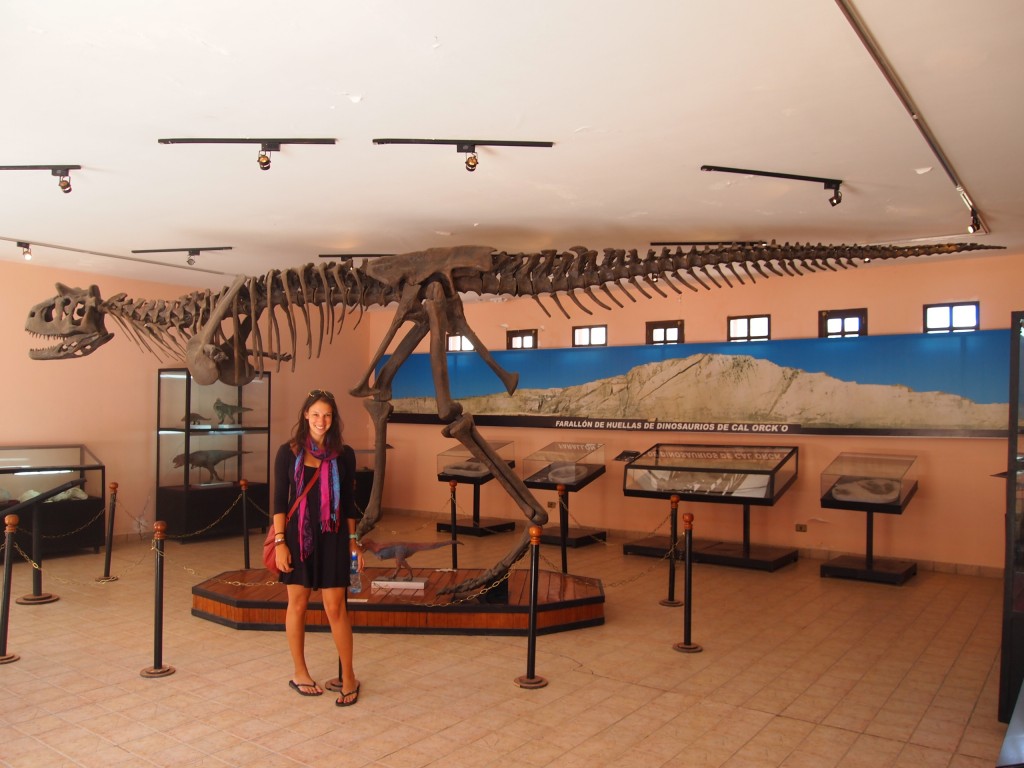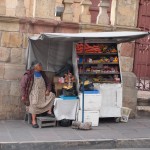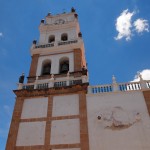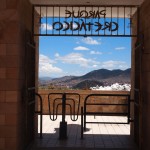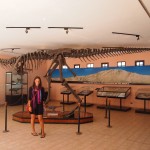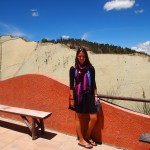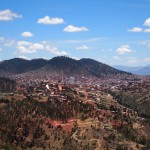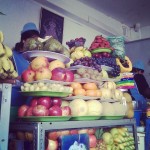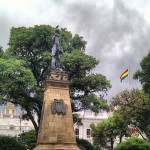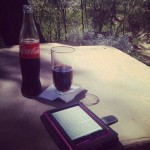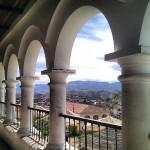I think he probably meant Yoda, but I let the reference slide. In any event, I had a great opportunity to practice my Spanish when I went out with An (my friend from Montreal who I met in Cochabamba when we were stuck inside for Census Day) for happy hour in Sucre on Tuesday night.
An has been working for nearly six months in Sucre, and knows lots of co-workers and locals from her time there. She graciously invited me out to happy hour, where drinks are two for one. We ordered 4 mojitos, which I thought meant well, 4 mojitos, but apparently that means each person gets the two for one special. So the four of us ended up with 8 mojitos, which cost us a grand total of 72 Bolivianos — approximately $10. No, not each. Total.
I laughed, thinking about what I would have been able to write in BostoNite for drinks that price. They weren’t weak either! We had a great time, and even though my new friend told me I speak like a Star Wars character (the flaw of thinking in English and speaking in Spanish) I was happy to have the opportunity to go out and socialize in a different language.
Other Sucre highlights?
I went to visit the Cal Orck’o, a ‘museum’ built around the longest sets of dinosaur tracks found on earth. Tourists have relatively visceral reactions to these prints when they find out the ‘wall’ with the sets of tracks (because of tectonic plate shifting millions of years ago, the prints appear on a wall which was once the floor of the earth) is quite far from the museum and they can’t actually go touch the prints, sit in them, or do other terrible tourist-like things. Regardless, I decided to fork over the very pricey $4 admission (hah) and check ’em out myself. Included in my $4 was a free guided tour, and I was the only person at that hour who needed an English tour. So, Juan Carlos met me and showed me around, explaining tons of interesting facts about dinosaurs and Bolivia and geology. I learned more in 20 minutes with him than I did in 2 days in ToroToro. Shocker. Anyways, Juan Carlos was clearly infatuated with me a little bit, and in between learning about dino prints, making me pose for many awkward photos, and practicing my Spanish, he managed to slip an awkward “want to go get a drink and talk about Bolivia?” question into our conversation. Earlier, we’d talked about where in the city I was staying, and since he was harmless enough, and when he offered to stop by the next night, I shrugged and said sure, I’d be happy to grab a beer.
Fast forward to 30 hours later, I’d finished making dinner and left the hostel to meet An and her friend at her apartment from some girl time with a bottle of wine. When I got back to my hostel around 10 PM, Mike, the owner, had a message for me. “Juan Carlos stopped by for you…” he said with a smirk on his face and a questioning sparkle in his eye. Shoot. I feel totally guilty and like a complete jerk. Even though I wasn’t interested in him romantically whatsoever, I would have loved to practice my Spanish with a local guy, and feel so badly for accidentally standing him up. Yikes! Even worse, I had no way of apologizing or being in touch.
Yesterday afternoon, I was sitting on a bench in the main plaza with my eReader when two little boys came trotting up to me, shoe-shining kits in hand. When I tried, in Spanish, to explain that my cloth mocassins cannot be shined, they showed me the magazine they were selling instead. Similar to the Spare Change newspaper made by and for the homeless population in Boston, the publication costs 3 Bolivianos, 1.50 of which goes directly to the child, and 1.50 of which goes to the non-profit helping the poverty-stricken children. I gladly bought a copy, especially when one of the boys proudly grinned and pointed to his picture in the magazine. After some more nagging, I let them use their brushes to ‘clean’ my moccasins, which, admittedly, were getting to be more brown than black. They each took a foot, working meticulously, and though most shoe shiners only charge about 3 Bolivianos, with wax, I handed each boy a 10 Boliviano note. Just seeing their little eyes light up and the grins spread across their faces was worth the $2.50 I’d just forked over. That money means so little to me and so much to them, and it was a very humbling reminder of what a poor country I’m traveling through.
Sure, Bolivian cities are hectic, disorganized and relatively dirty. But when you’re staying in a hostel with hot showers, full kitchen facilities and tons of other English-speaking tourists, it’s easy to forget the poverty around you. Bolivia is an incredibly poor country — as Westerners, we marvel at how cheap the produce and food are, but many families can barely afford those prices, as is. When you’re traveling from hostel to hostel, city to city, on the gringo trail it’s easy to forget the poor people in the countryside, the ones you aren’t interacting with, and the ones who have to shower once a week in the public shower facilities scattered through the city.
Mostly, I just spent the last 3 days doing lots of wandering, reading in the sun, drinking real-sugar Coca Cola’s, and cooking using a million fresh veggies I bought for just a few cents at the nearby mercado.
I was going to stay in Sucre through the end of the week and go on an all day hike to the siete cascadas today, but, to no surprise, the tour I was depending on to take me got cancelled. Surprisingly, not because of Bolivians — the couple I’d met who committed to go with me (and knew I couldn’t go without them because the agency needed 3 people for a tour) bailed on me last minute when we were supposed to go pay. So instead, I took an afternoon bus to Potosi, and tomorrow I’m seeing the two highlights of the town: the mines and the Casa de Moneda, before hopping on a night bus down to Tupiza.
- Typical South American snack stand
- La Principal Iglesia
- Chillin’ with some tyrannosaurus rex bones.
- Wall-o-dino prints!
- View of Sucre from the dino print museum
- Our 8 mojitos for $10.30
- Amazing juice stands in the mercado — $1 for any fresh fruit juice you can possibly concoct!
- Plaza 25 de Mayo
- My afternoon company 🙂
- View of Sucre from La Recoleta Mirador

